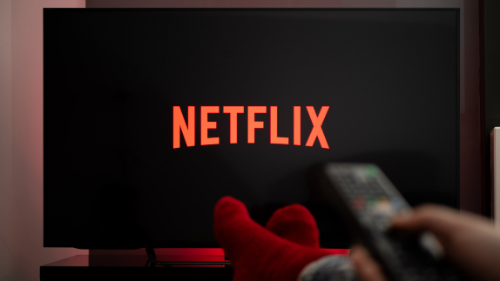Netflix Hikes Prices in Nigeria for Third Time in Two Years

TLDR
- Netflix has raised its subscription prices in Nigeria for the third time in less than two years
- Starting July 4, 2025, the Premium plan will cost ₦8,500 per month, up from ₦7,000—a 21.4% increase.
- The Standard plan now costs ₦6,500, while the Basic and Mobile plans have been increased to ₦4,000 and ₦2,500, respectively.
Netflix has raised its subscription prices in Nigeria for the third time in less than two years. Starting July 4, 2025, the Premium plan will cost ₦8,500 per month, up from ₦7,000—a 21.4% increase. The Standard plan now costs ₦6,500, while the Basic and Mobile plans have been increased to ₦4,000 and ₦2,500, respectively.
The streaming company says the changes are part of its global pricing strategy to fund platform upgrades and new content. "We’ll occasionally ask our members to pay a little extra to reflect improvements," Netflix said in a note to shareholders.
The move comes amid Nigeria’s worsening inflation, ongoing naira devaluation, and a 50% spike in mobile data prices by telecom operators. Unlike traditional pay-TV services regulated by the NCC, digital platforms like Netflix face no formal price controls in Nigeria, raising questions about consumer protection in the digital economy.
Daba is Africa's leading investment platform for private and public markets. Download here
Key Takeaways
Netflix's latest price hike underscores a growing tension in emerging markets between platform growth and affordability. As streaming becomes a primary source of entertainment, rising costs threaten to price out segments of the population. In South Africa, Netflix raised prices by nearly 20% in May despite relatively stable economic conditions. In Nigeria, however, where inflation is high and disposable incomes are shrinking, the increases carry heavier consequences. Data from Nigeria’s National Bureau of Statistics show that food inflation is above 40%, and real wages are falling behind cost-of-living increases. Digital subscription services remain outside regulatory purview, unlike pay-TV operators subject to NCC oversight. This leaves room for global platforms to unilaterally adjust prices, even in distressed economies. For consumers, the absence of digital pricing rules may mean difficult trade-offs between essential services and non-essential entertainment. For regulators, the moment presents an inflection point to define fair practice in an increasingly digital economy.

Next Frontier
Stay up to date on major news and events in African markets. Delivered weekly.
Pulse54
UDeep-dives into what’s old and new in Africa’s investment landscape. Delivered twice monthly.
Events
Sign up to stay informed about our regular webinars, product launches, and exhibitions.




